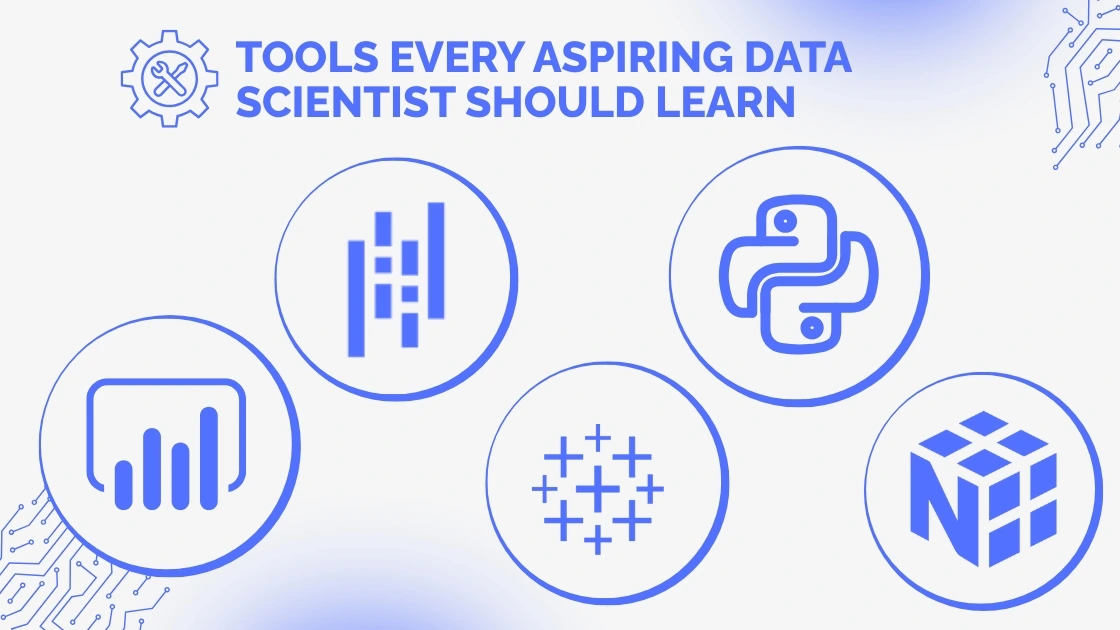Introduction to Data Science and Its Evolution
Data science has emerged as a pivotal discipline that amalgamates statistics, computer science, and domain expertise to extract insights from complex and vast datasets. Its origins can be traced back to statistical analysis and data mining, but it was not until the advent of the digital age, characterized by the exponential growth of data generation, that data science gained recognition as a distinct field. As organizations increasingly recognize the value of data-driven decision making, the evolution of data science has accelerated, reshaping how industries operate.
The importance of data science has expanded into various sectors, including healthcare, finance, marketing, and operations, illustrating its versatile application. For example, in healthcare, data science is utilized to analyze patient data to improve treatment outcomes, whereas, in finance, predictive models are employed to identify potential risks and optimize investments. This cross-industry applicability underlines the growing demand for data science proficiency among professionals, making it essential to integrate data science skills into academic curricula and vocational training programs.
Furthermore, the role of data scientists has transitioned from merely analyzing data to becoming integral decision-makers within organizations. As data science matures, the need for skilled professionals who can interpret data insights and communicate them effectively to stakeholders amplifies. Companies are now actively seeking individuals adept in data science methodologies, equipped not only with technical skills but also with the ability to translate complex data into actionable strategies.
In light of these developments, it is crucial for students and emerging professionals to start preparing for their careers in data science today. Engaging in summer training programs that focus on data science skills can be immensely beneficial. By acquiring relevant knowledge and hands-on experience, aspiring data scientists will be better positioned to meet the demands of the evolving job landscape that hinges on data analytics and insights. The future of data science is rife with opportunities, making it a worthwhile investment for the next generation of leaders in this field.
Key Skills for Data Scientists by 2030
As the field of data science continues to evolve, aspiring professionals must equip themselves with a diverse set of skills to remain competitive by 2030. The rapid growth of technology and the increasing dependence on data-driven decision-making necessitate that data scientists develop advanced analytical skills. This involves not only the ability to analyze data sets but also to derive actionable insights that can influence strategic directions in various industries.
Another critical area of expertise is artificial intelligence (AI) and machine learning (ML). Understanding the principles of AI and being skilled in ML algorithms will be essential as businesses leverage these technologies to automate processes and enhance data analytics. Data scientists will need to stay updated with emerging trends in AI, including deep learning and reinforcement learning, to effectively handle predictive modeling and complex problem-solving tasks.
Proficiency in big data technologies is also paramount. Familiarity with platforms such as Hadoop, Spark, and cloud-based solutions will enable data scientists to manage and analyze large data volumes efficiently. Given that companies will increasingly be dealing with vast datasets, the capability to implement big data strategies will provide a competitive edge.
Lastly, knowledge of natural language processing (NLP) will gain prominence by 2030. As organizations harness unstructured data from various sources like social media, customer feedback, and textual data, being adept in NLP will help data scientists to extract meaningful insights from such data. This skill will foster better communication with stakeholders and facilitate the design of more engaging user experiences.
In summary, by honing these skills—advanced analytical capabilities, AI and machine learning expertise, big data proficiency, and NLP knowledge—aspiring data scientists will be well-prepared to meet the challenges and opportunities that the future holds in the evolving landscape of data science.
Emerging Trends Shaping the Future of Data Science
The field of data science is continuously evolving, driven by advancements in technology and the increasing demand for data-driven decision-making. One of the most significant trends shaping the future of data science is the rise of artificial intelligence (AI). As businesses seek to harness the power of large datasets, AI tools that can analyze and interpret data faster and more accurately than human analysts are becoming indispensable. Machine learning algorithms, a subset of AI, are enabling data scientists to create predictive models that can anticipate trends and make recommendations, thereby streamlining various processes across sectors such as finance, healthcare, and marketing.
In addition to AI, big data continues to play a crucial role in the evolution of data science. With the exponential growth of data generation from diverse sources like social media, IoT devices, and e-commerce, professionals in this field must develop skills to manage and analyze these vast datasets. Proficiency in big data technologies, such as Hadoop or Spark, is becoming essential for data scientists. They must also be adept at data cleansing and preprocessing techniques, ensuring the quality and reliability of the data they work with.
Natural Language Processing (NLP) is another emerging area within data science that is gaining traction. As organizations increasingly seek to extract meaningful insights from unstructured text data, the ability to analyze and understand human language through NLP is proving to be a valuable skill. Data scientists who specialize in this area can uncover trends, sentiments, and user feedback from sources like customer reviews, social media posts, and even support tickets, ultimately aiding organizations in making informed decisions.
Automation is another trend influencing data science’s future. By automating repetitive tasks or integrating AI-driven tools into workflows, data scientists can focus on more strategic, high-level analyses. While these advancements lead to greater efficiencies, they also raise important ethical considerations surrounding data privacy and security. Data scientists must navigate these considerations responsibly, ensuring that the technologies they employ do not compromise user trust or data integrity.
As we look towards 2030, it is essential for current and aspiring data scientists to stay abreast of these trends. By embracing advancements in AI, big data, and NLP, and remaining mindful of ethical implications, professionals in this field can position themselves to create innovative solutions that address complex challenges across various industries.
Preparing Today for Tomorrow’s Data Science Landscape
As we look toward the future of data science, it is essential for students and aspiring professionals to start preparing today. The rapidly evolving landscape of data-driven decision-making means that skills and knowledge must be continuously updated to stay relevant. For those considering a career in this field, taking proactive steps during the summer months can provide a competitive edge and ensure a smoother transition into this dynamic industry by 2030.
One of the most effective ways to prepare is by pursuing online courses that cover fundamental and advanced topics in data science. Platforms like Coursera, edX, and Udacity offer a variety of courses tailored to different skill levels. Students should focus on key areas such as programming languages (Python, R), machine learning, data visualization, and statistics. By dedicating time to these subjects, individuals can enhance their theoretical understanding and practical skills essential for a successful career in data science.
Furthermore, participating in internships is a vital step in gaining real-world experience. Many companies offer summer training programs specifically designed for students interested in data science. These internships not only provide firsthand experience working with data but also allow students to network with professionals already in the field. Such connections can prove invaluable when seeking employment after graduation.
Additionally, engaging in personal or collaborative projects can help students develop their portfolios. Whether working on open-source projects or data challenges on platforms like Kaggle, applying theoretical knowledge in practical settings showcases creativity and problem-solving abilities. This hands-on experience is crucial in a field where practical application is often as important as academic knowledge.
In conclusion, by taking the initiative now through online courses, internships, and practical projects, students will be well-equipped to meet the demands of the future workforce in data science. Preparing today is an investment in tomorrow’s success.












